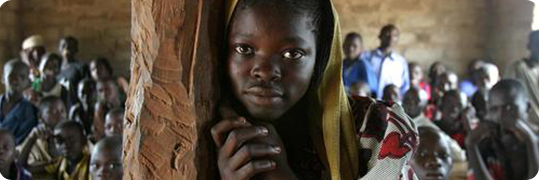The AMP Partnership works to ensure that best practices and new ideas being used or tried by national malaria programmes and partners are collected and shared to ensure that high quality distributions continue to take place. Part of the sharing of knowledge happens through face-to-face meetings, such as AMP trainings and technical assistance missions, while another part is based on operational guidance and documentation for planning and implementing insecticide-treated net (ITN) distributions.
AMP has developed a toolkit to support the planning and implementation of mass ITN distribution campaigns to achieve universal coverage for the entire population at risk of malaria in a country or targeted area. The toolkit, originally published in 2012, has undergone some revision with new chapters, briefs and resources included, taking into consideration the experiences of countries undergoing their own mass campaigns. The toolkit is currently (2025) in the process of further revision.

Toolkit
Operational guidance to support the mass distribution and use of insecticide-treated nets.

Macroplanning
Macroplanning is the big picture. It is the process through which every big decision is made about a mass ITN distribution campaign.

Microplanning
Microplanning gathers critical operational and financial information from the lowest possible implementation levels.

Monitoring & Evaluation
Operational guidance on the systematic assessment of the design, implementation and results of an ITN mass distribution campaign.

Logistics
Tools to assist in systematic tracking and ensuring accountability of ITNs distributed during a mass distribution campaign. Tools include a Commodity Management Audit (CMA) and a tracking system developed in Sudan.

Digitalization
Operational guidance on digitalization of mass ITN distributions, including the digitalization decision-making matrix which is a tool designed to help national malaria programmes and their implementing partners analyse their operational needs and context and decide whether to digitalize their mass campaign. The decision-making matrix will support discussions and decisions about the extent to which digitalization will be deployed, incorporating different factors and elements specific to the local context.

Social and Behaviour Change (SBC)
The importance of well-organized, systematic and sustainable SBC for ITN distributions cannot be underestimated. Operational guidance and case studies show how SBC can be used to influence healthy behaviours and develop social norms in ITN use and care.

Waste Management
Proper management of the large amount of plastic waste generated through ITN distributions has become an important issue in recent years. Operational guidance and case studies demonstrate different routes to waste management, including the ideal of a circular economy.
